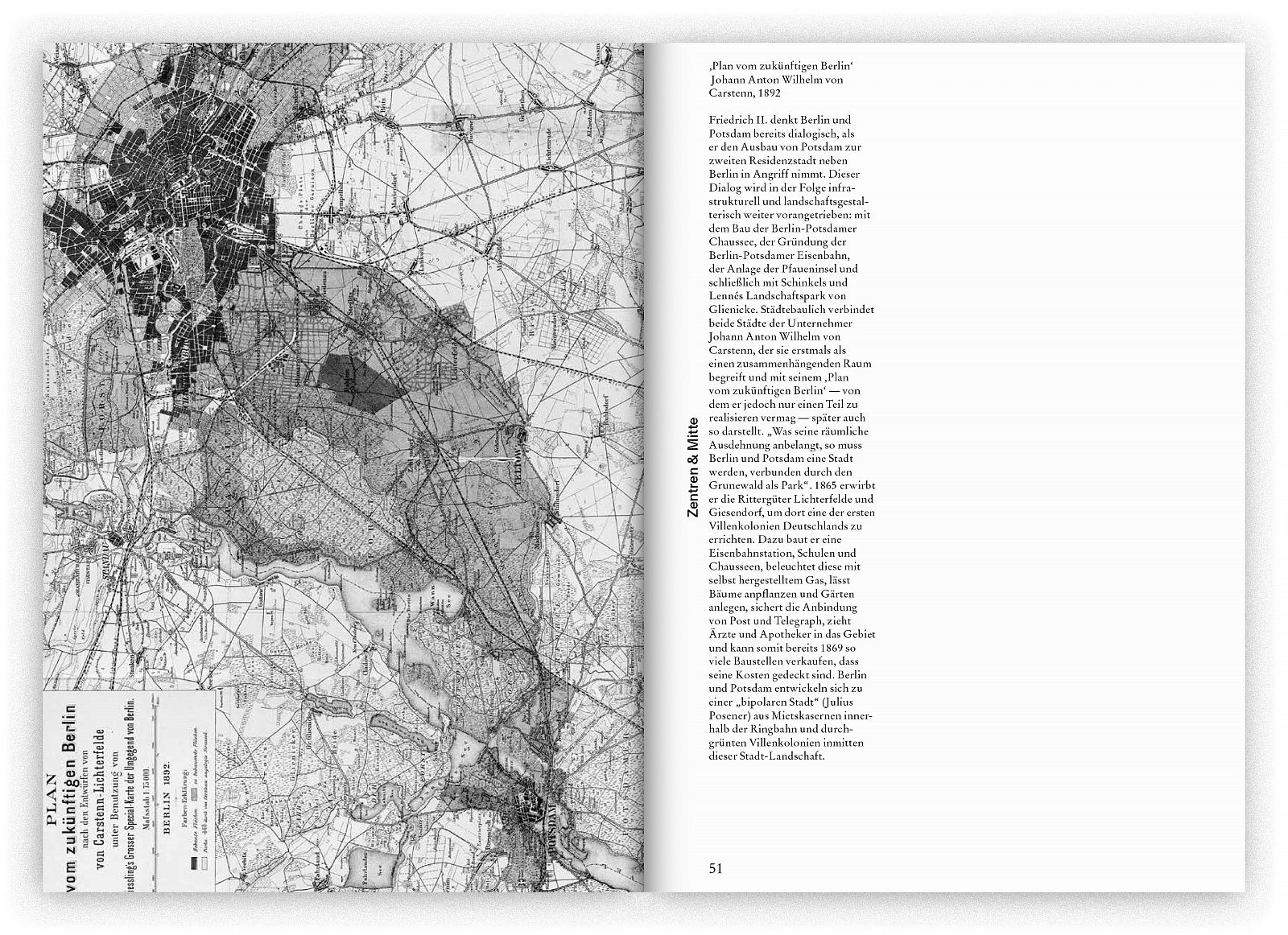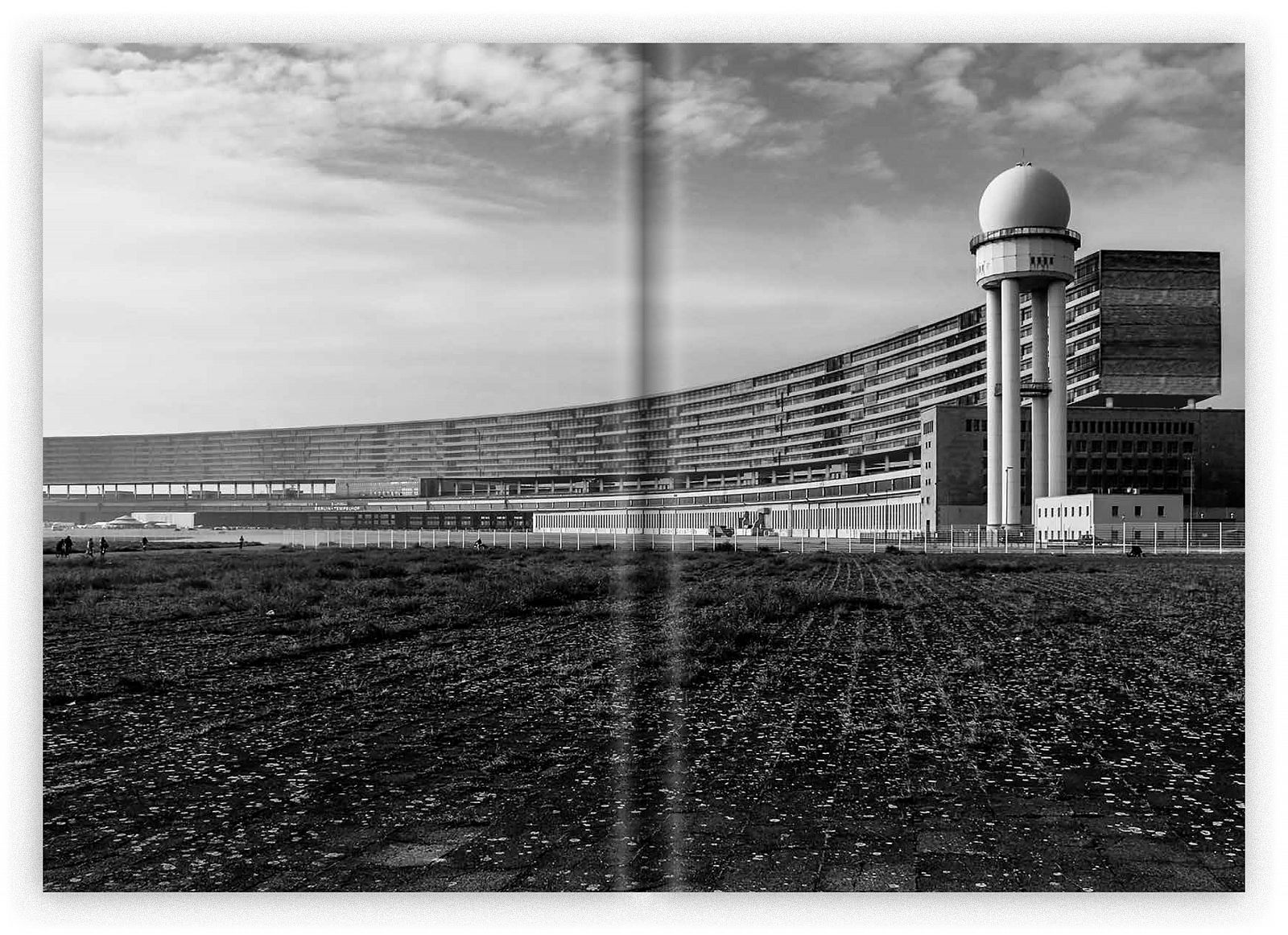Due to its dualistic history, Berlin has had to endure contradictions, conflicts, and ruptures more than any other city. A permanent collision of very different narratives, concepts, and projects has caused a continuous loss of energy and matter. The result of this entropy is the spatial deposition of all ideas and ideologies for this city, a heterogeneous palimpsest or multi-layered “textbook of events,” which is perceived as ugly and antiurban under classical aesthetic categories and therefore should be levelled out by urban policy and the building industry after the fall of the Berlin Wall. For the sociologist Ulrich Beck, by contrast, Berlin in the 90s was the city of a reflexive modernity par excellence. The openness and heterogeneity of these spaces offered both a differentiated confrontation with its history as well as a diverse social use and political manifestation. For Beck, acting reflexively modern meant continually exposing social contradictions, political conflicts, and historical ruptures and, in contrast to the “either-or” approach, adopting the attitude of the “as well as.”
This book, the catalogue and point of departure for the exhibition 0179 The Dialogic City—Berlin wird Berlin, intends to follow this call and to describe in this attitude, beyond the recognition of heterogeneity, possibilities for action of the “as well as.” The extensive, silver-shining and brick-like reader is structured by contrasting pairs of words that the authors use in order to deal with especially dialogic or non-dialogic moments arguing from their specific historic situation: hubs—center, city—nature, fiction—reality, public image—inherent logic, community—individuality, participation—governance, and land—property. Detailed observations and interviews with Berlin actors are grouped around these conceptual pairs. At the end of each chapter, a speculative commentary aims at translating the dialogic thinking of the presumably contradictory terms into opportunities for action.

© Verlag der Buchhandlung Walther König, Design: Thomas Mayfried

© Verlag der Buchhandlung Walther König, Design: Thomas Mayfried

© Verlag der Buchhandlung Walther König, Design: Thomas Mayfried

© Verlag der Buchhandlung Walther König, Design: Thomas Mayfried

© Verlag der Buchhandlung Walther König, Design: Thomas Mayfried

© Verlag der Buchhandlung Walther König, Design: Thomas Mayfried

© Verlag der Buchhandlung Walther König, Design: Thomas Mayfried

© Verlag der Buchhandlung Walther König, Design: Thomas Mayfried

© Verlag der Buchhandlung Walther König, Design: Thomas Mayfried

© Verlag der Buchhandlung Walther König, Design: Thomas Mayfried

© Verlag der Buchhandlung Walther König, Design: Thomas Mayfried